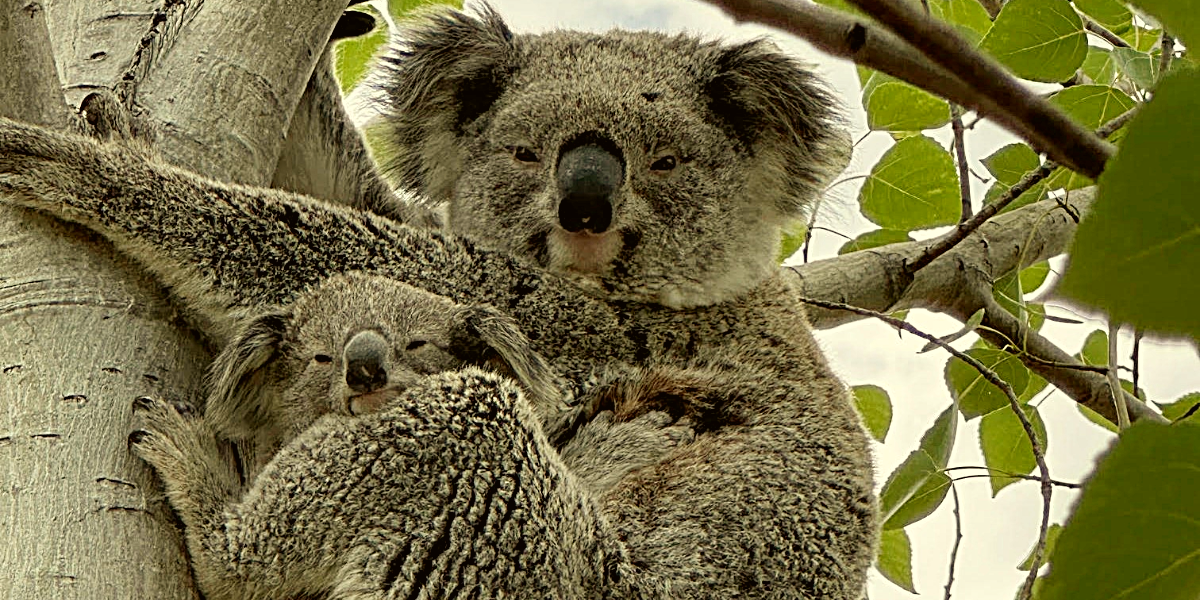Dwindling local koala populations have long been at the forefront of local conservationists’ minds. Inverell landowner Tanya Arentz is doing her bit, saving one koala at a time on behalf of the wildlife rescue organisation, Wildlife Information, Rescue and Education Service Inc. (WIRES), and she’s putting the call out for other locals to do the same.
“I’ve been with WIRES since May 2023 and already in that time I’ve had 53 koalas pass through my care and the odds are not great for our koalas,” said Ms Arentz.
“New England Koalas are in a crisis, we only know the stats of those cases reported, but so many would go unnoticed because there just aren’t enough people on the ground.”
When asked what inspired Ms Arentz to begin working with local koalas, she said, “I was literally just sitting in my backyard and we had a koala on the property who I suspected needed help and I just thought to myself, I should be doing something myself.”
After becoming involved with WIRES, and completing both the level 2 course in providing rescue and immediate care, and the species-specific course that allows Ms Arentz to provide temporary care for koalas on her property, she now describes her volunteer work with koalas as her full-time job.
“The biggest issue is that we have a huge number of rescues in the Inverell area, but no local hospital of veterinary facility that we can take injured or sick koalas to,” said Ms Arentz.
“Our nearest koala hospitals are either Port Macquarie or Lismore, so from the time I pick up the koala, take it home, care for it overnight, and then make the 5–6-hour drive to a koala hospital, that’s a lot of distress for the animal before it’s able to receive formal treatment.”
Whilst loss of habitat is often cited as a number one concern for koala populations, it’s far from the only challenge faced.
“Out of the 53 that I’ve rescued so far it’s a pretty even spilt – I’ve had 14 with Chlamydia infections, 12 who’ve been hit by cars, and 11 that we would class as injury through habitat loss, which includes things like dog attacks then there’s others who just have general or unknown injuries or are just being found in the wrong place,” said Ms Arentz.
“I’ve even recently done two rescues of joeys (baby koalas) who were caught up in barbed wire fences, where mum has tried to go under and just left bub behind stuck on the fence.”
“Only about half of the koalas rescued ever make it back to the wild.”
WIRES coordinate funds for carers like Ms Arentz, through both public donations, and the distribution of government grants. More fundraising is always needed to help provide the support, training and equipment required for carers, however it’s not the only way locals can help.
“What we need more than anything is more volunteers,” said Ms Arentz.
“There are lots of local WIRES members but very few of them are active at any given time.”
There are three levels of volunteering courses and opportunities available through WIRES:
- Rescue 101: which trains individuals in transporting sick and injured native animals
- Rescue and Immediate Care: which provides individuals with the skills to rescue and provide immediate care for injured, sick and orphaned wildlife
- Species specific training: allows carers to care for a specific species overnight, or until suitable care can be found for the animal
“If nothing else it’s all about awareness too,” said Ms Arentz.
“So many animals go unreported, or unaided because people just don’t know who to call. Inverell is doing so much better now because people know I’m around and that I can help.”
“Most people are more than willing to help out they just don’t know what to do so knowledge is definitely key.”
She also encourages people to be mindful in driving on local roads.
“I’ve just released one of the big males who’s been in hospital care for 140 days, but I’ve already spotted him sitting on the road – please be careful and be alert, I’ve got such a soft spot for them and I’m so invested in their recovery.”
For more information about how to volunteer with WIRES, or to make a donation to the New England Branch, visit the WIRES website.
Like what you’re reading? Support The New England Times by making a small donation today and help us keep delivering local news paywall-free. Donate now


